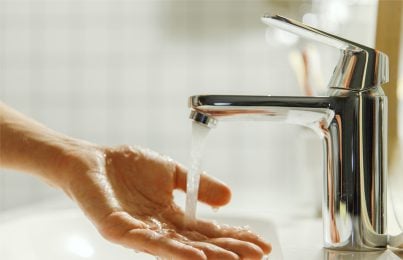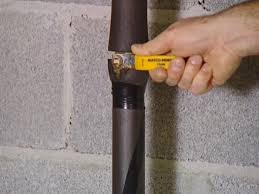Practical Winterizing Strategies to Protect Your Pipes From Bursting in Cold Weather
Practical Winterizing Strategies to Protect Your Pipes From Bursting in Cold Weather
Blog Article
We've encountered this post about Winterizing Your Pipes listed below on the internet and decided it made sense to discuss it with you in this article.

All property owners that stay in pleasant climates must do their ideal to winterize their pipelines. It is something you must do throughout fall prior to deep winter season really begins. Failure to do so can mean calamity like icy, cracked, or burst pipelines. If the weather condition exterior is shocking, below are some handy winterizing hacks to keep your plumbing system shielded even.
Try a Hair Clothes Dryer or Warm Weapon
When your pipelines are almost freezing, your dependable hair clothes dryer or heat weapon is a godsend. If the warm towels do not assist remove any type of resolving ice in your pipelines, bowling warm air straight right into them may assist. You may end up harmful your pipelines while trying to melt the ice.
Open Up Closet Doors Hiding Plumbing
When it's cool outside, it would certainly be valuable to open up cabinet doors that are camouflaging your pipes. Doing this tiny trick can maintain your pipes warm as well as restrict the possibly unsafe results of freezing temperature levels.
Take Some Time to Wrap Exposed Pipeline
One easy and also clever hack to heat up icy pipes is to cover them with cozy towels. You can cover them first with towels. After securing them in position, you can pour boiling water on the towels. Do it gradually to let the towels absorb the fluid. You can likewise make use of pre-soaked towels in hot water, just do not fail to remember to put on protective gloves to secure your hands from the heat.
Activate the Faucets
When the temperature level drops and also it seems as if the cold temperature level will certainly last, it will help to switch on your water both inside your home and outdoors. This will certainly maintain the water moving via your plumbing systems. Furthermore, the movement will certainly reduce the freezing process. Especially, there's no demand to turn it on full blast. You'll end up wasting gallons of water in this manner. Rather, go for regarding 5 drops per min.
When Pipes are Frozen, shut Off Water
Switch off the main water valve instantly if you notice that your pipes are entirely frozen or almost nearing that phase. You will generally find this in your basement or laundry room near the heating unit or the front wall closest to the street. Transform it off immediately to prevent more damage.
Do not fail to remember to close exterior water resources, as well, such as your hookup for the garden residence. Doing this will certainly protect against additional water from filling up your plumbing system. With even more water, even more ice will certainly stack up, which will ultimately lead to burst pipes. If you are not sure about the state of your pipes this winter months, it is best to call a professional plumber for an examination. Taking this positive method can save you hundreds of bucks in repairs.
All home owners that live in warm climates must do their best to winterize their pipes. Failure to do so can spell disaster like icy, broken, or ruptured pipelines. If the hot towels do not aid dislodge any type of clearing up ice in your pipelines, bowling hot air straight into them may help. Turn off the primary water valve immediately if you notice that your pipes are entirely icy or virtually nearing that stage. With more water, more ice will stack up, which will ultimately lead to rupture pipes.
PREVENT YOUR PIPES FROM FREEZING THIS WINTER
A Leading Cause of Property Damage
When the weather is taking a deep nose dive into the cold dreary days, the risk of your pipes freezing and potentially bursting skyrockets. Unfortunately, during these cold dreary months, burst pipes are the most common denominator for property damage. The pipes that are most at the risk are those that are in areas where it is most cold in your home. For instance, pipes located in interior places such as basements, attics, and your garage. Unfortunately, that doesn’t mean that the pipes running through your cabinets or exterior walls can’t freeze. Good news, however, is that you can do things to help prevent pipes from freezing.
How to Prevent Pipes From Freezing
Once the temperature starts to drop during the winter, you should be taking the proper measures needed to ensure that your pipes stay warm and that there is circulation of water through them. Some steps that experts may recommend could go against your better judgement when it comes to saving water and heat. However, it would go without saying that when expenses are compared, damaged pipes could put a bigger dent in your wallet than a water bill.
What Can I Do?
Keep your garage door closed. This is very important, especially if you have water supply lines running through your garage. Open your kitchen and bathroom cabinets to allow warm air to circulate through them. Allow air circulation throughout your home. Keeping the interior doors open will once again allow the warm air to circulate inside your home. Ensure your thermostat is running the same temperature throughout the night and day. If you plan to be away from home during the cold months, set your temperature no lower than 55° F. This should provide enough heat to keep the pipes warm and prevent any remaining water inside the pipes from freezing. For more of a long-term solution, add insulation to attics, basement, and other crawl spaces around your home. By allowing your faucet to drip, it will alleviate pressure in the system. This is important because the pressure that is created between the blockage and the faucet can potentially cause the pipes to burst. Allowing the faucet to drip will prevent the pressure from building up, therefore keeping the pipes from bursting. Seal any cracks, openings, and crawl spaces around your home to prevent cold air from coming inside. This keeps your pipes-not to mention your home-warmer and less susceptible to issues caused by freezing temperatures. For the pipes in your home that are easily accessible, applying electrical tape to them might prevent them from freezing over. This is a quick fix, as you can apply the tape directly to the pipe. There are two options for heating tapes. One turns on and off by itself when it senses heat is needed. The other type of heating tape needs to be applied when heat is needed and removed when not necessary. If you have exposed pipes in your home, you can check this website to take a look at a few options that would be available at a shop near you.

As a passionate person who reads on How to stop pipes from freezing during the winter, I was thinking sharing that article post was really useful. Do you know about another person who is fascinated about the niche? Take a moment to share it. I value reading our article about Winterizing Your Pipes.
Book Service Report this page